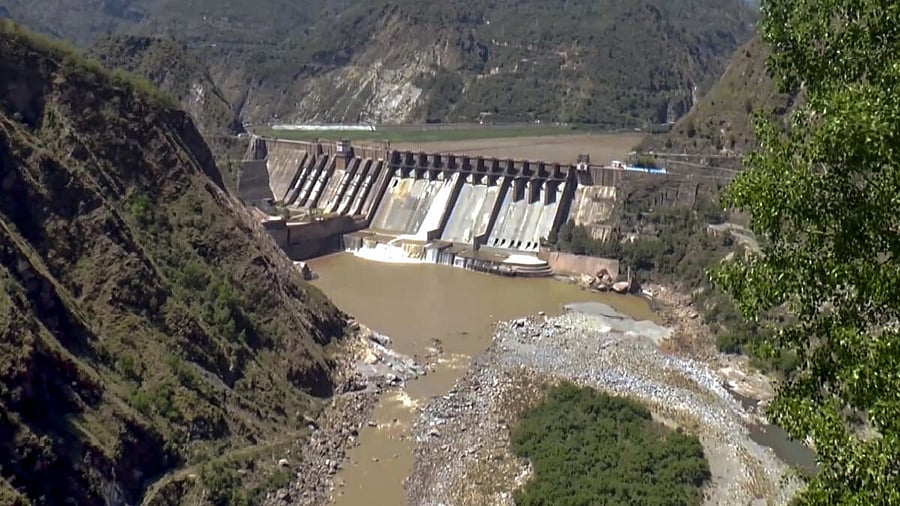
A dam on the Indus river system, in Reasi, J&K
Credit: PTI Photo
A deadly terror attack in Jammu and Kashmir's Pahalgam killed 26 people on April 22, following which, on Wednesday, India announced a set of diplomatic measures, including the expulsion of Pakistani military attaches, suspension of the Indus Waters Treaty of 1960 and immediate shutting down of the Attari land-transit post, alleging cross-border links to the Pahalgam attack.
Water conflicts or water disputes arise over control over and access to water resources. In history, there have been many examples of water disputes between two countries.
As per United Nations Development Programme, 153 countries share at least one of the worlds 256 transboundary lake basins and rivers. A transboundary water body can be defined as one whose waters flow through two or more state borders.
Here, we list down a few cases where the countries are at dispute due to the sharing of a common water body.
Let us take a look at water conflicts across the globe:
India-Pakistan
India has said the Indus Waters Treaty (IWT) of 1960 with Pakistan will be held in abeyance with immediate effect, until Islamabad credibly and irrevocably abjures its support for cross-border terrorism.
The Indus Waters Treaty was signed in 1960 after India and Pakistan had disputes over water rights to Indus River. Both the countries have been dependent on Indus River for its resources.
In 1947, the dispute between East Punjab in India, and West Punjab in Pakistan went on to became an international issue, as the political boundaries between the two countries was drawn across the Indus Basin.
The share of the resource, however, was uneven, as the water-rich headwater was for India. Moreover, two important irrigation headworks were also in the Indian territory.
"India was therefore given the physical capacity to cut off vital irrigation water from large and valuable tracts of agricultural land in West Pakistan," according to a study named Conflict and Cooperation on South Asia's International Rivers.
In 2019, the attack in Kashmir's Pulwama had killed at least 40 soldiers after a convoy of Indian paramilitary forces was targeted. Following the attack, India threatened to cut off its water supply. The Indus Waters Treaty has withstood three wars.
India said that in the recent attack in Pahalgam, two of the three militants who attacked tourists were from Pakistan. Islamabad has denied any role and said "any attempt to stop or divert the flow of water belonging to Pakistan... will be considered as an Act of War".
Egypt and Ethiopia
Egypt and Ethiopia have had conflicts over the Grand Ethiopian Renaissance Dam. In 2020, there were concerns about the Ethiopian dam on Blue Nile reducing the water flow to Egypt. Egypt is dependent on water from the Nile River; therefore, a dam was seen as a threat to the country.
Prime Minister of Ethiopia, Abiy Ahmed, had warned that nobody can stop them from building the dam, and doing so will invite a war situation, and Ethiopia "could get millions ready."
The Nile River has bee a major water body for the countries residing in its basin.
Egypt considers its historical practices to be a strong reason to have rights to the Nile water; on the other hand, Ethiopia claims rights over it on geographical basis.
China and Mekong basin
China, being the upstream country, has built multiple damns on the Mekong River, which affects the downstream countries like Vietnam, Cambodia, Laos and Thailand.
China has built 11 dams on the river as of 2020. Many countries are heavily dependent on the Mekong River. Experts say that China holds a stronger grip over other countries as it has the ability to control the flow of the river.
Tigris and Euphrates Rivers
There has been conflict in countries that were dependent on the Tigris and Euphrates Rivers. It is said to be one of the earliest known water conflicts and can be dated back to 2400 BC. The dispute over the rivers is among Turkey, Syria and Iraq. Since the 1950s, water sharing has become an issue after several projects and the initiation of building a dam.
(With Reuters and PTI inputs)
